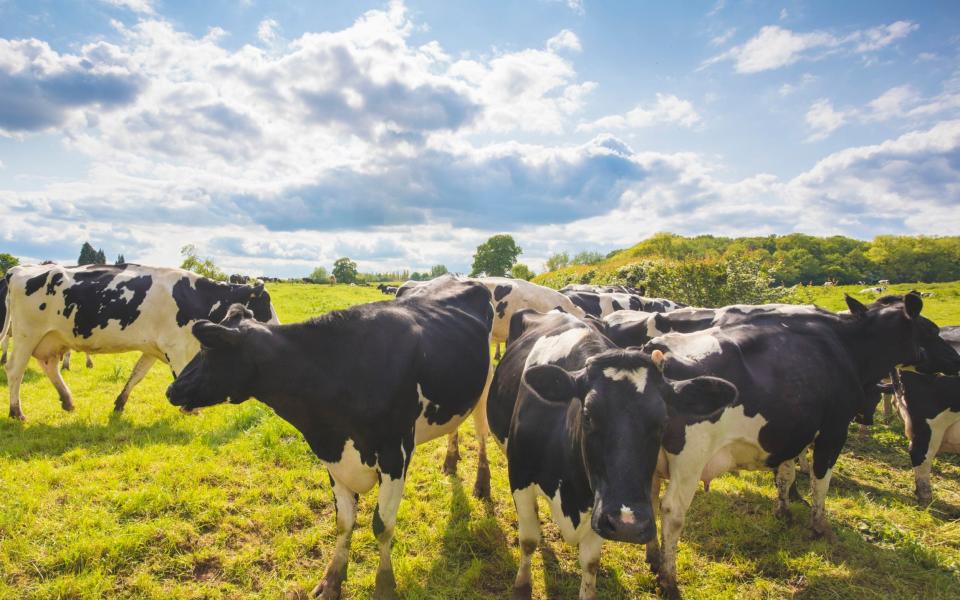Potential winter blackouts could threaten milk and meat supplies

Milk and meat supplies could come under threat if Britain is hit by energy blackouts this winter, food industry bosses have warned.
Major power shortages would seriously impair food producers that are unable to stop or stagger the production process to meet certain timetables for energy use. This includes the dairy industry.
The Government is in talks with food industry figures to determine how power outages could affect food supplies in the UK. The Department for Environment, Food and Rural Affairs (Defra) is being briefed on the issue, according to PoliticsHome.
Ian Wright, co-chair of the Food and Drink Sector Council, a partnership between the UK Government and the food and drink industry, said: “It all depends on the nature of the blackouts but some rely on 24-hour production and can’t just stop and start the process. Milking cows, for example, is a continuous process. There is a risk that the cows become overburdened.”
Mr Wright, a former chief executive of the Food and Drink Federation, said that the issue raised animal welfare concerns. He also warned that some livestock risked becoming overweight beyond the point at which they must be slaughtered.
Although it is preparing for the possibility of blackouts, Defra said that it does not expect energy blackouts this winter.
A government spokesperson said: “This is not something we expect to happen.
“The UK has a highly resilient food supply chain, as demonstrated throughout the Covid-19 response, and we engage extensively with stakeholders across the whole food supply chain to ensure we are ready for all eventualities, even the ones we don’t expect to happen.
“The UK’s secure and diverse energy supplies will ensure households, businesses and industry can be confident they can get the electricity and gas they need.”
However, Government officials have begun planning for managed electricity blackouts if a “worst case” energy supply crisis hits. This includes organised blackouts for industry and households. Below-average temperatures and reduced electricity imports from Norway and France could expose four days in January to such a scenario, according to the report.
It comes as fresh forecasts suggest energy bills could peak at more than £4,400 from next April. The research and consulting firm, Cornwall Insight, expects the energy cap to hit £4,266, up from £1,277 in January 2022.
The End Fuel Poverty Coalition predicts that almost a third of households will be in fuel poverty from January. It said that 10.5 million would be acutely affected by rising prices, up from an earlier estimate of 4.6 million.
A BEIS spokesman played down the possibility of energy blackouts: “We are not dependent on Russian energy imports, unlike Europe, with access to our own North Sea gas reserves, steady imports from reliable partners, the second largest LNG [liquefied natural gas] port infrastructure in Europe, and a gas supply underpinned by robust legal contracts.
“Households, businesses and industry can be confident they will get the electricity and gas they need.”

 Yahoo Movies
Yahoo Movies 